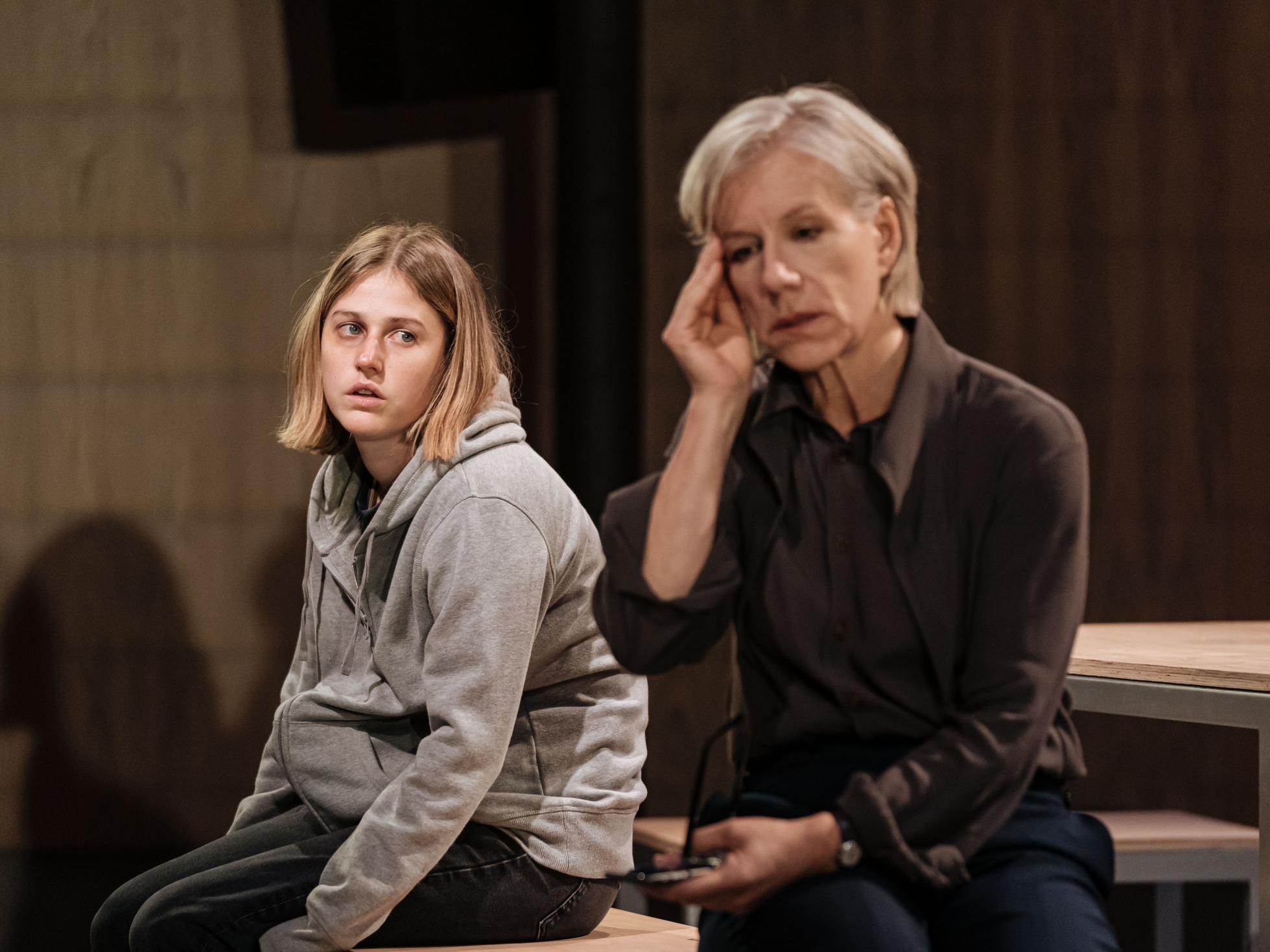The Doctor, Almeida Theatre review: Juliet Stevenson is magnificent in provocative, wonderfully upsetting production
As his leaving present to the Almeida, Robert Icke brilliantly re-imagines Arthur Schnitzler’s Professor Bernhardi

Your support helps us to tell the story
From reproductive rights to climate change to Big Tech, The Independent is on the ground when the story is developing. Whether it's investigating the financials of Elon Musk's pro-Trump PAC or producing our latest documentary, 'The A Word', which shines a light on the American women fighting for reproductive rights, we know how important it is to parse out the facts from the messaging.
At such a critical moment in US history, we need reporters on the ground. Your donation allows us to keep sending journalists to speak to both sides of the story.
The Independent is trusted by Americans across the entire political spectrum. And unlike many other quality news outlets, we choose not to lock Americans out of our reporting and analysis with paywalls. We believe quality journalism should be available to everyone, paid for by those who can afford it.
Your support makes all the difference.What is the collective noun for a group of doctors? Moliere would plump for a “disaster” of doctors. In his 1673 satire, The Hypochondriac, he presents medics as a bunch of avaricious quacks bent on fleecing the credulous. For George Bernard Shaw, it would be a “conspiracy”. In his comparatively good-humoured The Doctor’s Dilemma (1906), one of them actually cries out, “We’re not a profession; we’re a conspiracy.”
And what would be the best way of typifying the acrimonious committee of white coats who are at each others’ throats in The Doctor? A “vicious vested interest” might do the trick.
As his leaving present to the Almeida, where he has been a formidable associate director, Robert Icke offers this free, self-scripted adaptation of Arthur Schnitzler’s 1912 play Professor Bernhardi. The original is set in the Vienna of 1900, and is a brilliant dissection of the antisemitism growing like gangrene in Austrian society, and a premonition of the horrors to which it will lead.
In his provocative, wonderfully upsetting production, Icke re-imagines the scenario taking place now, in Britain. The whiff of Freud’s cigar (the great psychoanalyst was a big fan of Schnitzler, whom he regarded as his “doppelganger”) no longer pervades the atmosphere. But the current anxiety that we will lapse into a nightmare re-run of catastrophic errors from the past is keenly felt.
In a magnificent central performance, Juliet Stevenson plays a female counterpart of Schnitzler’s protagonist. Dr Ruth Wolff is the founding physician of the Elizabeth Institute. She is brilliant and award-laden, and mainly because of her, the institute is looking to move into a bespoke new building, in which it will embark on a determined search for a cure for dementia. She is also an atheist, culturally but not religiously Jewish. The future funding of the institute comes under threat as a result of her action at the start of the piece. She refuses to grant admission to a Catholic priest (Paul Higgins) who has come (at the request of the girl’s parents) to give the last rites to a dying 14 year old, whom Wolff wants to protect from unnecessary fear and stress. It’s characteristic that in Icke’s version, the teenager is dying from the sepsis caused by a botched abortion attempt.
So, though Ruth had no hand in this, pro-lifers feel free to join in the witch hunt that causes her first to relinquish executive control, and then get struck off. Stevenson superbly captures the contradictions in the idealistic medic who, again reminding you of Moliere, is reprehensibly naive as a politician. She’s ultimately no match for the people who try to intimidate her through the intolerant identity politics exacerbated by the internet. It’s typical of the production’s bitter comedy that Oliver Alvin-Wilson plays both the doctor who offers the most galvanising diagnosis of where the “simplistic bullshit” of identity-group-doctoring will end up, and – after the interval – the unprincipled host of Take the Debate, a medical ethics TV show more interested in generating heat than light.
As the panel frisk every aspect of her identity for possibly incriminating evidence, Stevenson’s face (blown up on two screens in live close-up) is the picture of contemptuous dismay. Her ravaged nervous system underscored by boisterous drumming, she races frantic, wall-bashing circuits of Hildegard Bechtler’s blond wood, calculatedly anonymous conference room. Ria Zmitrowicz is excellent as the young transgender teenager who discovers that Ruth’s house is the last place in which to take refuge. Stevenson witheringly communicates the doctor’s sharp intransigence (what have the “woke” awakened from, she’d like to know) and achingly registers her shyness over ordinary intimacy – as when she awkwardly thaws into a dance with her (never officially acknowledged) lesbian partner (movingly played by Joy Richardson).
Audiences may be divided over the addition of a psychological hinterland for the initial fatal decision. And yes, the piece does at times feel top-heavy. But this swansong is immensely stimulating.
Join our commenting forum
Join thought-provoking conversations, follow other Independent readers and see their replies
Comments